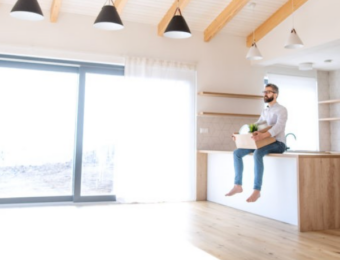
How to value a house

Looking to sell? Then you will most likely be wondering how to value your house. Ultimately the answer to this question is whatever someone is willing to pay for it. However, there are four main factors which influence its value and what you should list if for which we have listed below.
The risk of putting your property on the market for more than its value is it elongates the selling process and turns buyers off. Later reducing the asking price can lead to lowball offers from buyers looking for a bargain. The best way to make sure you are getting the right price is to work with an estate agent trust to give you a true assessment of your house value.
What adds value to a house
Location
Location is one of the most influential factors contributing to house values. Everything from where you are in the country, county and city can make a major difference in your house price.
- Is your house urban area or rural?
- Urban housing demands higher prices than rural, except in a select number of villages or districts where demand to live is higher than average. One example of this locally is the village of Woburn in Bedfordshire.
- What region or county is the house located?
- The average price of houses in the southern end of the UK is higher than the north. For example, prices in the Buckinghamshire and Bedfordshire counties average around 400K, as opposed to the average price in Derbyshire of 200K.
- What is your proximity to amenities?
- Access to amenities such as schools, transport links and town centres not only influences the price, but also how quickly you get an offer.
- What is your proximity to undesirable locations?
- The closer you are to undesirable locations the more this will affect your house value. Areas surrounding industrial sites, local sewage treatment centres or even heavy traffic areas reduces demand and therefore house prices.
Size
The second most important feature influencing your house price is its size. Buyers usually require a minimum number of bedrooms; so when it comes to size bigger usually means better.
- What is the number and size of your bedrooms, bathrooms, and reception rooms?
- With an increasing number of people working hybrid or fully remote, having a spare bedroom that can be used as an office is a major selling point.
- What are the overall house dimensions and how big is the garden?
- Gardens in the UK can get quite small at times, particularly in urban areas. If you have a large garden, then this will contribute to your house value.
- Is there any garage, driveway, or any off-street parking?
- Over 68% of the UK drives. An off road car parking space, garage, or carport is a major tick in most buyer’s wish list.
- Is the house detached, semi-detached, terraced or is it a multi-occupancy building?
- Fully detached houses are the most desired and therefore are valued the highest. Flats, maisonettes or apartments are valued lower as these are typically leasehold rather than freehold.
Condition
The third most influential feature to the value of your home is its condition. Everything from how recently it was decorated to any outstanding maintenance can impact the offers potential buyers will place on your home. Many buyers will think about the cost of repairs and in the majority of cases will deduct this from off any offer.
- What is the state of repair?
- Any maintenance that needs doing on a house will automatically reduce the asking price. Problems with the property such as damp or mould will not only put off potential buyers but will reduce what they are willing to pay.
- How modern are the facilities?
- A modern kitchen and bathroom are major motivators for buyers and so can improve the house value and the speed of the sale.
- How recent is your EICR, EPC and Gas Safety check?
- Typically, buyers will conduct searches through a solicitor and survey the house for problems. Having an up-to-date EICR, EPC and Gas Safety check speeds up this process and gives buyers peace of mind.
- Are you aware of any risk of subsidence or disaster?
- Is your house prone to flooding? Or is it on unstable ground? These are major red flags for many buyers as it will increase insurance premiums and excess’.
The housing market
The final factor influencing how to value a house is the housing market both locally and nationally. Whilst some areas can be immune to fluctuations in market prices, overall the majority of the UK will see house prices rise and fall based on the strength of the economy, influences interest rates and inflation.
During a low economic downturn, interest rates increase, mortgages become more expensive and demand for housing drops. As demand decreases, the prices of houses fall to match demand.
H2 How to get an accurate valuation
With all these factors to consider, here is the best steps to take to get an accurate valuation of your property:
- Review other houses in the local area that has sold in your area of a similar size within the last few months
- Get an online valuation. But make sure you remember that online valuations are based on an algorithm and does not consider the properties condition. You can check out Sperring Residentials valuation tool here.
- Invite two to three estate agents around to do a walk through and provide their estimate. Remember to ask for both what they recommend the house listing price as well as a prediction on what it would achieve.
By doing your homework ahead and meeting with more than one agent you will be able make a more informed decision on what is a realistic value for your property and avoid long delays in selling.
Tips for picking the right estate agent
The key ingredient to picking the right agent is trust. Not only does an estate agent represent your property to prospective buyers, but you also rely on them to keep you up to date throughout the process. Its tempting to go with the lowest fee or the highest valuation, however, make sure you are confident the agent is giving a true reflection of the property’s value.
If you are looking to sell and need some advice, speak to our friendly team at Sperring Residential on 01582 825 548 or by email at enquiries@sperringresidential.com.


